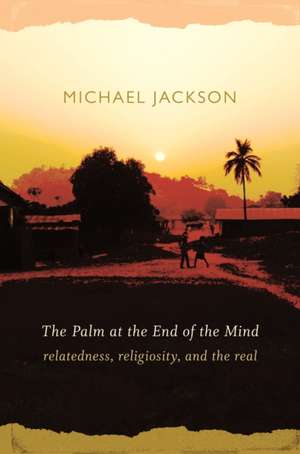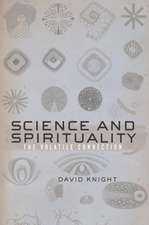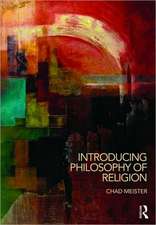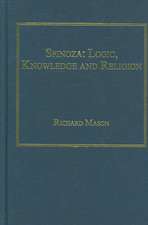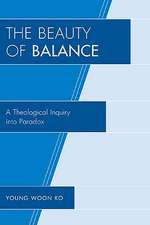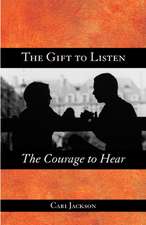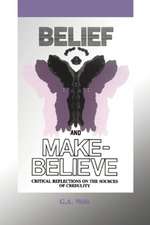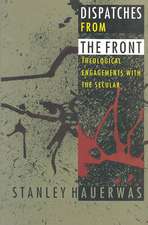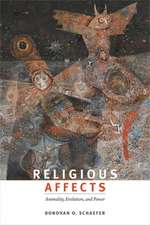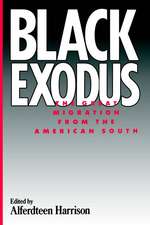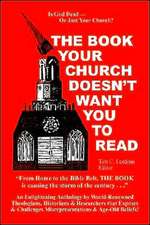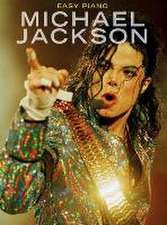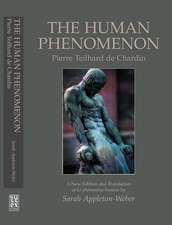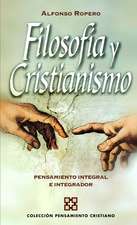The Palm at the End of the Mind – Relatedness, Religiosity, and the Real
Autor Michael Jacksonen Limba Engleză Paperback – 19 feb 2009
Preț: 263.29 lei
Nou
Puncte Express: 395
Preț estimativ în valută:
50.38€ • 52.71$ • 41.85£
50.38€ • 52.71$ • 41.85£
Carte tipărită la comandă
Livrare economică 02-16 aprilie
Preluare comenzi: 021 569.72.76
Specificații
ISBN-13: 9780822343813
ISBN-10: 0822343819
Pagini: 256
Dimensiuni: 155 x 232 x 20 mm
Greutate: 0.43 kg
Ediția:New.
Editura: MD – Duke University Press
ISBN-10: 0822343819
Pagini: 256
Dimensiuni: 155 x 232 x 20 mm
Greutate: 0.43 kg
Ediția:New.
Editura: MD – Duke University Press
Recenzii
Elegant and harrowing, this book from renowned ethnographer Michael Jackson takes us to the borderlands of human experience, where normal habits of thought and rules of social location are lost or ruptured, where we confront sides of ourselves that ordinarily do not see the light of day, yet from which new modes of consciousness may take shape. As Jackson moves fluidly between storytelling, poetry, memoir, metaphysics, social commentary, interior exploration, and existential reflection, we travel with him around the globe and through incongruous histories: penumbral domains that he argues do not belong exclusively to the language of religion, or even to language itself. The Palm at the End of the Mind insists on the integrity of transmutations, even terrible ones, for these are still eternally precious and deeply true. It bears witness to the cosmic connections forged in such mystery, refusing to let us look away. Long after its last page, it haunts, it sings, it prophesies. This is a brilliant ethnography of the heart. Kimberley Patton, Harvard Divinity SchoolThe Palm at the End of the Mind is a marvelous work of deep scholarly and artistic significance. Michael Jackson reflects on those thingslove, loss, pain, courage, resiliencethat define the human condition. Bringing a lifetime of work in anthropology to bear, he provides a rich description of the irreducible dynamics of living in social worlds that are in continuous flux.Paul Stoller, author of The Power of the Between: An Anthropological Odyssey
Notă biografică
Michael Jackson is Distinguished Visiting Professor in World Religions at Harvard Divinity School. His many books of anthropology include "Excursions," "In Sierra Leone," and "At Home in the World," all also published by Duke University Press. He is the author of a memoir, six books of poetry, and two novels.
Textul de pe ultima copertă
"Elegant and harrowing, this book from renowned ethnographer Michael Jackson takes us to the borderlands of human experience, where normal habits of thought and rules of social location are lost or ruptured, 'where we confront sides of ourselves that ordinarily do not see the light of day, yet from which new modes of consciousness may take shape.' As Jackson moves fluidly between storytelling, poetry, memoir, metaphysics, social commentary, interior exploration, and existential reflection, we travel with him around the globe and through incongruous histories: 'penumbral domains' that he argues do not belong exclusively to the language of religion, or even to language itself. "The Palm at the End of the Mind" insists on the integrity of transmutations, even terrible ones, for these are still eternally precious and deeply true. It bears witness to the cosmic connections forged in such mystery, refusing to let us look away. Long after its last page, it haunts, it sings, it prophesies. This is a brilliant ethnography of the heart."--Kimberley Patton, Harvard Divinity School
Cuprins
Preface xi
1. Ancestral Roots
The Real 1
Only Connect 2
93 Irving Street 4
Reconnecting 8
Missed Connections 11
Tertium Quid 14
The Dead 19
Mind the Gap 23
The Genealogical Imagination 29
The Penumbral 34
After Midnight 38
Second Skins 40
On Not Severing the Vine When Harvesting the Grapes 42
Corrupted Con-texts 46
The Broken Heart 48
2. Primary Bonds
Incarnations 52
The Matrixial 57
A Letter from Athens 61
Emily's Journal 62
Beginnings 65
The Pain in Painting 69
Paths 73
Parallel Lives 75
My Lunch with arthur 81
The Wellness Narratives 84
Night 94
Outside the Window 98
"What Really Matters" 99
3. Elective Affinities
Knots 103
Marina del Rey 106
In Limbo 108
In Media Res 108
In Wellington 112
The Enigma of Anteriority 116
Survivor Guilt 119
Ventifact 123
Measured Talk 129
Heaven and Hell 131
Manifest Destiny 134
The Nature of Things 148
The Road of Excess 159
The Eternal Ones of the Dream 162
Strange Lights 15
Recognitions 168
The Other Portion 173
It Happens 176
Ships That Pass in the Night 178
4. Competing Values
Cafe Stelling 182
Value Judgments 184
The Bottle Imp 189
Marginal Notes 193
A Storyteller's Story 195
Big Thing and Small Thing 200
Sacrifice 203
Prince Vessantara 208
The Girl Who Went Beneath the Water 210
Ill-Gotten Gains 216
Is Nothing Sacred? 221
Return to the Cafe Stelling 229
Metanoia 232
The Place Where We Live 236
Acknowledgments 239
1. Ancestral Roots
The Real 1
Only Connect 2
93 Irving Street 4
Reconnecting 8
Missed Connections 11
Tertium Quid 14
The Dead 19
Mind the Gap 23
The Genealogical Imagination 29
The Penumbral 34
After Midnight 38
Second Skins 40
On Not Severing the Vine When Harvesting the Grapes 42
Corrupted Con-texts 46
The Broken Heart 48
2. Primary Bonds
Incarnations 52
The Matrixial 57
A Letter from Athens 61
Emily's Journal 62
Beginnings 65
The Pain in Painting 69
Paths 73
Parallel Lives 75
My Lunch with arthur 81
The Wellness Narratives 84
Night 94
Outside the Window 98
"What Really Matters" 99
3. Elective Affinities
Knots 103
Marina del Rey 106
In Limbo 108
In Media Res 108
In Wellington 112
The Enigma of Anteriority 116
Survivor Guilt 119
Ventifact 123
Measured Talk 129
Heaven and Hell 131
Manifest Destiny 134
The Nature of Things 148
The Road of Excess 159
The Eternal Ones of the Dream 162
Strange Lights 15
Recognitions 168
The Other Portion 173
It Happens 176
Ships That Pass in the Night 178
4. Competing Values
Cafe Stelling 182
Value Judgments 184
The Bottle Imp 189
Marginal Notes 193
A Storyteller's Story 195
Big Thing and Small Thing 200
Sacrifice 203
Prince Vessantara 208
The Girl Who Went Beneath the Water 210
Ill-Gotten Gains 216
Is Nothing Sacred? 221
Return to the Cafe Stelling 229
Metanoia 232
The Place Where We Live 236
Acknowledgments 239
Descriere
Through sixty-one beautifully crafted, concise essays, anthropologist Michael Jackson reflects on life situations where we are sometimes thrown open to new ways of understanding ourselves and connecting with others
